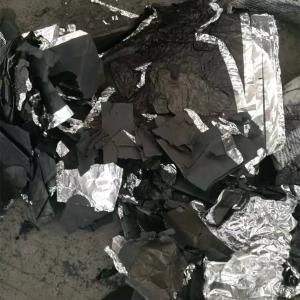lithium ion battery recycling issues
lithium ion battery recycling issues
Lithium-ion batteries are usually composed of positive electrodes, negative electrodes, electrolytes, separators, battery covers, battery shells and other components. The outer layer is generally wrapped with plastic, aluminum, and iron shells. Fluids, binders and porous membrane materials, electrolytes and their dissolved electrolyte salts. The positive and negative electrode materials are an important part of lithium-ion batteries. There are several problems in the recycling and disposal of waste lithium-ion batteries:
1. Classification and recycling of lithium-ion batteries. Different types of lithium-ion batteries have different material properties, which requires not only the efforts of battery recycling companies, but also the collection and classification of batteries;
2. The recovery of lithium-ion batteries is limited to the recovery of precious metals. Metals with higher recovery costs, electrolytes, anode materials, etc. are discarded, causing secondary pollution, and the recovery of the entire battery is not systematic;
3. At present, the recycling process still has the problems of high cost and serious secondary pollution. In view of the above problems, the recycling of lithium-ion batteries not only needs to be optimized and improved in process, but also needs to establish a large-scale and comprehensive recycling process, and it is more urgent to develop a systematic recycling system. Lithium-ion battery manufacturers are developing in the direction of large-scale, low-cost, and low secondary pollution.
Waste lithium batteries use a rationalized discharge process. Currently, salt water discharge is practical. The discharged lithium batteries are sorted by crushing and crushing. The components of the lithium batteries are separated. The separated lithium battery separators, Copper and aluminum particles can be recycled and reprocessed.
The treatment of waste batteries can be applied to the recovery and sorting of copper and aluminum. Lithium batteries are a wide range of battery types and have recyclable value. The copper and aluminum mixed metals and black powder inside can be recycled and processed, and can also be used. The method of mechanical sorting achieves the purpose of separation





